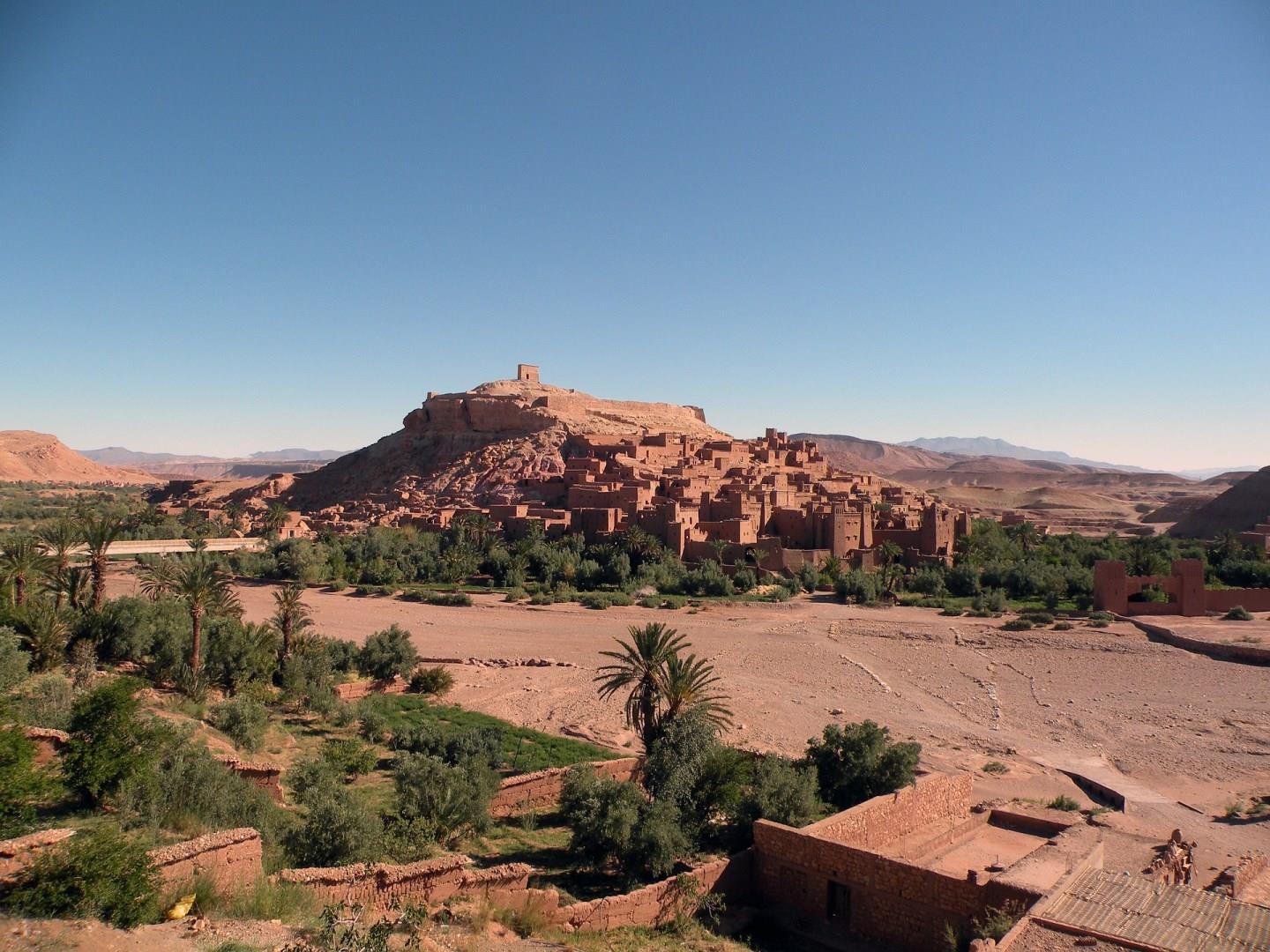Ait Benhaddou





Aït Benhaddou, a UNESCO World Heritage Site, is a captivating ksar (fortified village) nestled on the ancient caravan route between Marrakech and the Sahara in Morocco. Known for its stunning earthen clay architecture and towering kasbahs, Aït Benhaddou offers visitors a glimpse into Morocco's rich history and Berber culture. This well-preserved village, with its labyrinth of red mud-brick buildings, has been a popular filming location for Hollywood, featured in iconic movies and TV shows such as "Gladiator," "Lawrence of Arabia," and "Game of Thrones".
The allure of Aït Benhaddou lies not only in its cinematic fame but also in its authenticity and breathtaking scenery. As you cross the river over a series of stepping stones or a small bridge, you will be greeted by the imposing walls of the kasbahs, designed to protect the village from invaders. Once inside, wander through the narrow, winding alleyways and climb up to the granary at the top of the hill. From here, you can enjoy sweeping views of the surrounding desert landscape, the High Atlas Mountains, and the Ounila River valley, which contrasts beautifully with the earthy tones of the ksar.
Aït Benhaddou is more than just a scenic stop—it is a living piece of history. While most of the villagers have moved to more modern dwellings across the river, a few families still inhabit the ancient structures, preserving the traditional way of life. The village's unique architecture and design, featuring thick, high walls and corner towers with decorative motifs, provide insight into the traditional building techniques of the region's indigenous Amazigh people. Visitors can explore this rich heritage by visiting local artisans and craft shops or enjoying a cup of mint tea in a traditional café overlooking the ksar.
A fun fact about Aït Benhaddou is its role in the trans-Saharan trade route. The village was once a bustling hub for traders carrying gold, salt, and slaves between the Sahara and the trading centers of Marrakech and Fes. Today, Aït Benhaddou continues to draw travelers from around the world, not for trade, but for its historical charm, dramatic landscapes, and the sense of stepping back in time. The best time to visit is during the spring or fall, when temperatures are mild, allowing for comfortable exploration of this extraordinary architectural gem in the heart of Morocco.